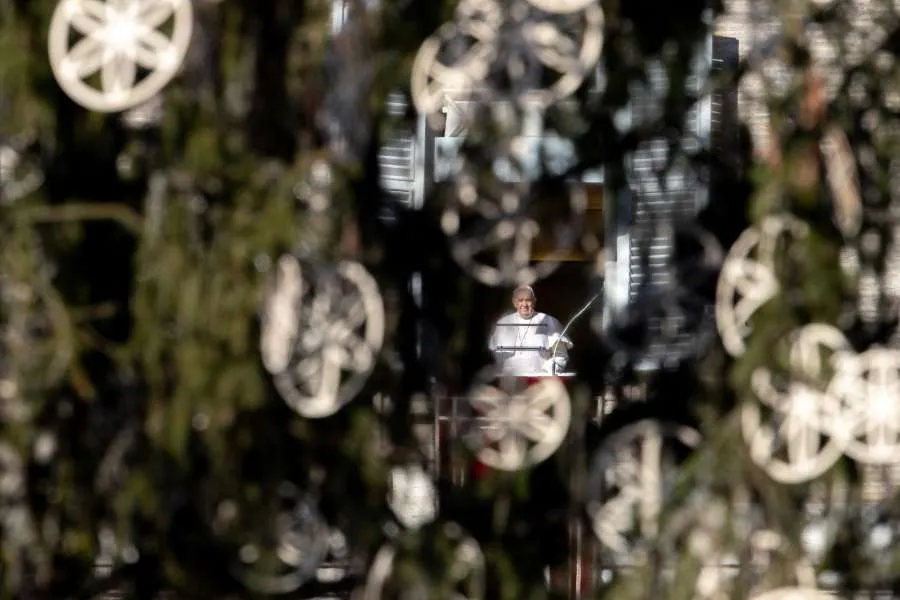“She is not passive, but active. She does not submit to God, she binds herself to God. She is a woman in love prepared to serve her Lord completely and immediately.”
“She could have asked for a little time to think about it, or even for more explanations about what would happen; perhaps she could have set some conditions... Instead, she does not take time, she does not keep God waiting, she does not delay.”
He contrasted Mary’s readiness to accept God’s will with our own hesitations.
He said: “How often -- let us think of ourselves now -- how often is our life is made up of postponements, even the spiritual life! For example, I know it is good for me to pray, but today I do not have time…”
He continued: “I know it is important to help someone, yes, I must do it: I will do it tomorrow. Today, on the threshold of Christmas, Mary invites us not to postpone, but to say ‘yes.’”
(Story continues below)
While each “yes” is costly, the pope said, it will never cost as much as Mary’s “yes,” which brought us salvation.
He observed that “May it be done to me according to your word” is the last phrase we hear from Mary on the final Sunday of Advent. Her words, he said, were an invitation to us to embrace the true meaning of Christmas.
“For if the birth of Jesus does not touch our lives -- mine, yours, yours, ours, everyone’s -- if it does not touch our lives, it slips past us in vain. In the Angelus now, we too will say ‘Be it done unto me according to Thy word’: May Our Lady help us to say it with our lives, with our approach to these last days in which to prepare ourselves well for Christmas,” he said.
After reciting the Angelus, the Holy Father highlighted the plight of seafarers on the eve of Christmas.
“Many of them — an estimated 400,000 worldwide — are stranded on ships, beyond the terms of their contracts, and are unable to return home,” he said.
“I ask the Virgin Mary, Stella Maris [Star of the Sea], to comfort these people and all those in difficult situations, and I urge governments to do all they can to enable them to return to their loved ones.”
The pope then invited pilgrims, who stood wearing face coverings in the square below, to visit the “100 Nativity Scenes at the Vatican” exhibit. The annual event is being held in the open air, to prevent the spread of the coronavirus, under the colonnades that surround St. Peter’s Square.
He said that the nativity scenes, which come from all over the world, helped people to understand the meaning of the Incarnation of Christ.
“I invite you to visit the Nativity scenes under the Colonnade, to understand how people try to show how Jesus was born through art,” he said. “The cribs under the colonnade are a great catechesis of our faith.”
Greeting residents of Rome and pilgrims from abroad, the pope said: “May Christmas, now close at hand, be for each of us an occasion of inner renewal, of prayer, of conversion, of steps forward in faith and of fraternity among ourselves.”
“Let us look around us, let us look especially at those who are in need: the brother who suffers, wherever he may be, is one of us. He is Jesus in the manger: the one who suffers is Jesus. Let us think a little about this.”
He continued: “Let Christmas be closeness to Jesus, in this brother and sister. There, in the brother in need, is the nativity to which we must go in solidarity. This is the living nativity scene: the nativity scene where we truly meet the Redeemer in the people in need. Let us therefore journey towards the holy night and await the fulfillment of the mystery of salvation.”







